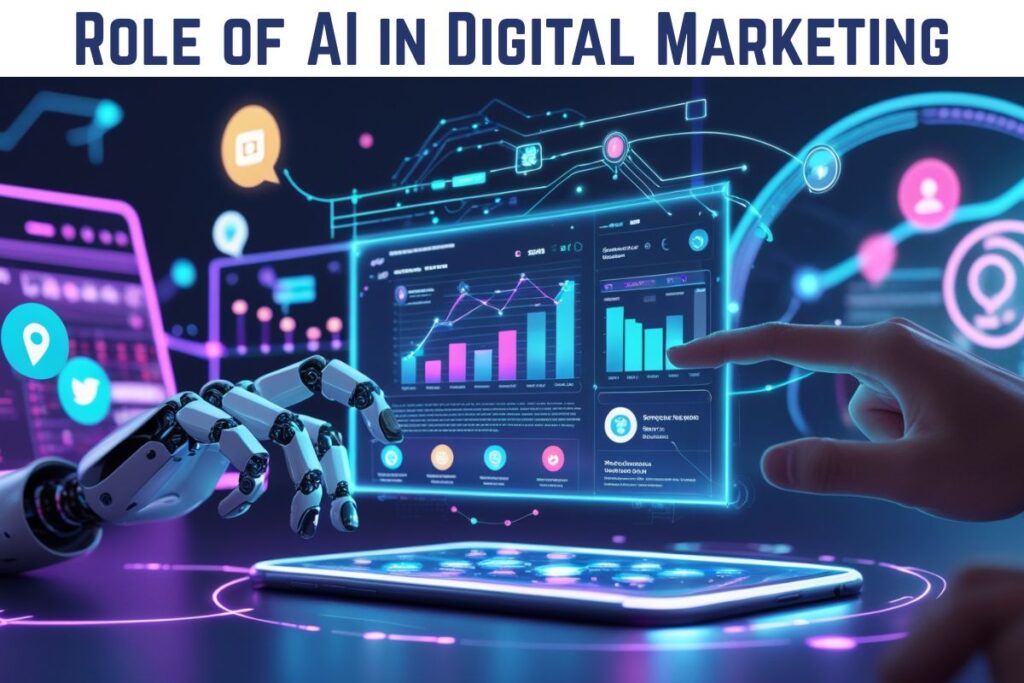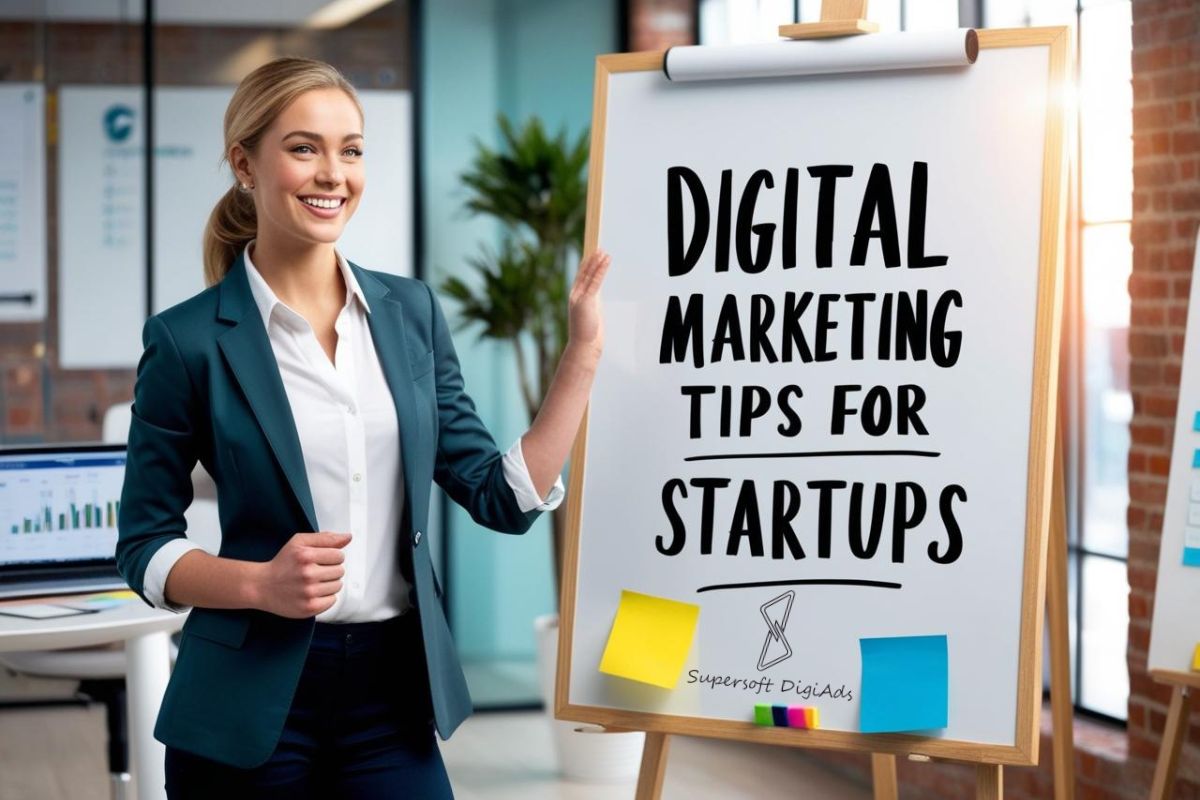Over the past few years, we have seen the emerging use of AI across various industries—and digital marketing is no exception. The shift from traditional digital marketing to AI-driven methods marks a major evolution in audience engagement and strategy execution.
By integrating AI technologies into their strategies, marketers are automating complex tasks like data analysis, customer segmentation, content creation, and campaign optimization—all with greater accuracy and speed than ever before. AI is becoming a highly powerful tool, delivering personalized, real-time experiences based on deep data insights and predictive analytics.
Let’s dive into how the interaction between digital marketing and AI is redefining the rules of engagement—and what it means for businesses ready to harness its power.
Data Analytics
The sheer volume of data generated daily from social media interactions to website clicks can be overwhelming. AI can collect and analyze large data sets by automating processes, uncovering hidden patterns, and delivering actionable insights at unprecedented speed and scale. It can even summarize findings for you, helping save time and create smarter strategies for the future.
AI doesn’t just look backward; it also forecasts future performance. Advanced models and learning agents predict which channels, creatives, and audience segments will drive the best returns. These systems can then reallocate budgets in near real-time to make the most of the analyzed data. Through AI-based data analysis tools, marketers can even analyze unstructured data—such as comments and reviews on social media accounts.
Hyper-Personalization
AI empowers brands to deliver individualized experiences by tailoring content, recommendations, and marketing messages to each customer’s preferences and behaviors. It can adjust the customer experience based on actions taken—for example, based on the user’s location or device type. An AI chatbot can handle every customer interaction with minimal human intervention.
This hyper-personalized approach leads to better conversion rates, increased engagement, and improved customer loyalty. It works by gathering and analyzing user data—such as browsing history, demographics, and purchase behavior—in real time.
Content Creation
AI content creation allows brands to streamline digital marketing by automating tasks like writing blog posts, social media content, and product descriptions. AI tools accelerate ideation by suggesting topics and headlines based on your target keywords. AI can also assist in creating SEO-optimized content.
Popular tools like Semrush, Frase, and Jasper help generate SEO-friendly content, while chatbots like ChatGPT and Google Gemini are used to craft powerful conversational copy. The main benefit of AI-powered content creation is speed and scalability. However, the content produced by AI is not posting-ready—it requires human oversight to ensure accuracy, tone, and originality. AI complements rather than replaces creative efforts.
Conversational AI & Chatbots
Conversational AI and chatbots have become foundational tools in modern digital marketing, automating customer interactions and boosting both efficiency and revenue growth. Using natural language processing (NLP) and machine learning, chatbots can answer questions, resolve issues, provide recommendations, schedule calls, and more.
From checking order status to guiding users through basic troubleshooting, these bots operate 24/7 ensuring no lead goes unattended. Customer support has become far more accessible without the need for constant human intervention.For example, Sephora, a leading cosmetics brand, employs an AI-powered chatbot to provide personalized beauty advice and product recommendations, guiding customers through their purchase journey with tailored tips based on real-time interactions.
Marketing Automation and Campaign Management
AI-powered automation handles repetitive tasks such as email scheduling, social media posting, content generation, and ad placement. This frees up time for strategic activities like creative development, customer relationship building, and long-term planning.
AI learns from data, predicts behavior, and adjusts campaigns in real time. Campaigns become self-optimizing—AI systems can test subject lines, delivery times, content variations, and audience segments to continuously improve performance.
If you’ve ever tried to run simultaneous campaigns across Facebook, Google Ads, email, and organic channels, you know how chaotic it can get. AI can help with centralized campaign management tools like HubSpot and Salesforce Marketing Cloud, making campaign management unified and data-driven. AI identifies which channels deliver the best ROI and adjusts strategies dynamically based on performance.
Improved Ad Targeting
AI-driven ad targeting has transformed digital marketing by using predictive analytics, real-time bidding optimization, and dynamic creative optimization. Advertisers can now reach high‑value audiences with greater precision and efficiency.
AI continuously evaluates ad auction outcomes and adjusts bidding strategies in real time. By analyzing factors such as time of day, device type, and contextual signals, AI maximizes conversion rates by targeting the right impressions. Programmatic real-time bidding platforms powered by AI make split‑second decisions on ad placements and dynamically adjust bids to win over the most relevant users. Brands can generate and test creative variants at machine speed, shortening campaign launch times from weeks to days.
Challenges with AI in Digital Marketing
While AI drives innovation and efficiency, businesses must also overcome several challenges to successfully integrate these tools.
Data Privacy and Compliance
AI requires access to vast amounts of personal data—demographic profiles, browsing habits, and purchase histories—to build effective predictive models. Businesses must follow best practices and comply with regulations by clearly informing users about data collection and getting their consent. Offering opt-in/opt-out options ensures transparency and builds trust.
Data Quality and Integration
For AI to work well, it must rely on accurate, clean, and complete data. However, businesses often collect data from multiple sources: sales systems, websites, email lists which can lead to inconsistencies, duplicates, or outdated information.
To resolve this, teams should implement a central data hub where all information is cleaned, matched, and kept current before feeding it into AI tools.
Skill Gap and Organizational Readiness
Deploying AI-driven marketing requires technical expertise, which is often lacking in many marketing teams. To close this gap, companies must invest in training programs and hire tech-savvy professionals with AI knowledge.
Creativity Constraints
While AI can suggest headlines, layouts, or descriptions based on past successes, it often lacks emotional nuance or fails to reflect a brand’s unique identity. Over Reliance on AI may result in generic or uninspiring content. Marketing teams should treat AI-generated content as a starting point, refining it to ensure it resonates with the brand’s voice and values.
Integration Complexity
Integrating AI with existing systems can be complex. Businesses must consider workforce readiness and technological compatibility. It’s best to adopt AI systems that integrate smoothly with current infrastructure to avoid disruptions in data flow or workflow.
Conclusion
While AI brings powerful insights, it isn’t a set-and-forget solution; it demands ongoing tuning and oversight to stay aligned with the evolving marketing landscape. When harnessed effectively, AI enables hyper-personalized experiences, allowing data-driven decisions, and streamlined operations that unlocks new growth opportunities. At Supersoft DigiAds, our digital specialists partner with you to design and refine bespoke AI strategies making sure every algorithm works in harmony with your goals and delivers impactful results.







